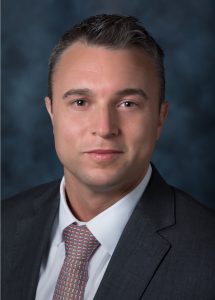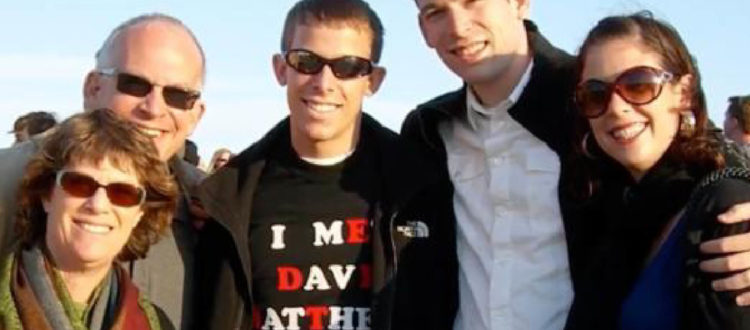GCF-AGA Grant Awards Newest Research Scholar: Samuel J Klempner, MD
 Samuel J. Klempner, M.D., was completing his fellowship at Beth Israel Deaconess Medical Center in Boston when he first became interested in studying the process by which gastric cancer spreads to the peritoneum—the membrane that lines the abdominal cavity. Now he’ll be able to take a major step towards solving that mystery, having recently been chosen as the recipient of a $300,000 research grant from the Gastric Cancer Foundation and the American Gastroenterology Association (AGA).
Samuel J. Klempner, M.D., was completing his fellowship at Beth Israel Deaconess Medical Center in Boston when he first became interested in studying the process by which gastric cancer spreads to the peritoneum—the membrane that lines the abdominal cavity. Now he’ll be able to take a major step towards solving that mystery, having recently been chosen as the recipient of a $300,000 research grant from the Gastric Cancer Foundation and the American Gastroenterology Association (AGA).
“One of the biggest knowledge gaps in gastric cancer is the peritoneum,” says Klempner, a gastrointestinal medical oncologist and assistant professor at Harvard Medical School and Massachusetts General Hospital. “This funding will allow us to generate preliminary data and take it to the next step,” potentially identifying new therapeutic vulnerabilities to exploit in the mission to help improve the prognosis for patients with metastatic gastric cancer.
The AGA–Gastric Cancer Foundation Ben Feinstein Memorial Research Scholar Award in Gastric Cancer provides $100,000 per year for three years to young scientists working towards careers in gastric and esophageal cancer research. Klempner is the third recipient of the award.
Klempner’s research focuses on studying the composition of the fluid that accumulates in the abdomens of gastric cancer patients with peritoneal spread. This fluid, called ascites (uh-SY-tees), contains some gastric cancer cells, but figuring out what else is in the mix could greatly advance the search for new treatments, Klempner believes.
“What’s in ascites is essentially a black box,” he says. “We don’t know the immune cell composition or secreted factors that are there. We don’t even know much about the tumor cells that are in there. So part one of the project is to get a baseline understanding of that, which could inform rational approaches to treatment for this underserved population.”
Klempner’s team has been building a biobank of ascites and blood samples collected from gastric cancer patients before they receive any drug therapies to treat their cancer. “We want to understand the landscape at diagnosis,” he explains. The plan is to take additional samples from the same patients during their treatment regimens. “That will help us understand how the cells of the ascites are adapting and responding to the pressures of treatment.”
The second phase of the research will focus on characterizing immune components of the ascites, including “checkpoints,” which are proteins that prevent the immune system from recognizing and attacking cancer. Klempner hopes the results will ultimately lead to clinical trials of new combinations of immune-boosting drugs.
Klempner, a graduate of the University of Massachusetts Medical School, grew up on a farm in Wayland, MA, and now lives with his wife in Boston. As a lifelong sports lover, he’s naturally drawn to problems that require teamwork to solve—and gastric cancer is a perfect fit, he says. “You have your nutritionists, your surgeons, gastroenterologists, radiation oncologists, radiologists and pathologists. You can’t take care of stomach cancer patients on your own.”
Now thanks to the new grant, the Gastric Cancer Foundation is a vital member of his team, Klempner says. “This is a sizeable award that will lay the foundation for us to hopefully take this research in multiple future directions.

